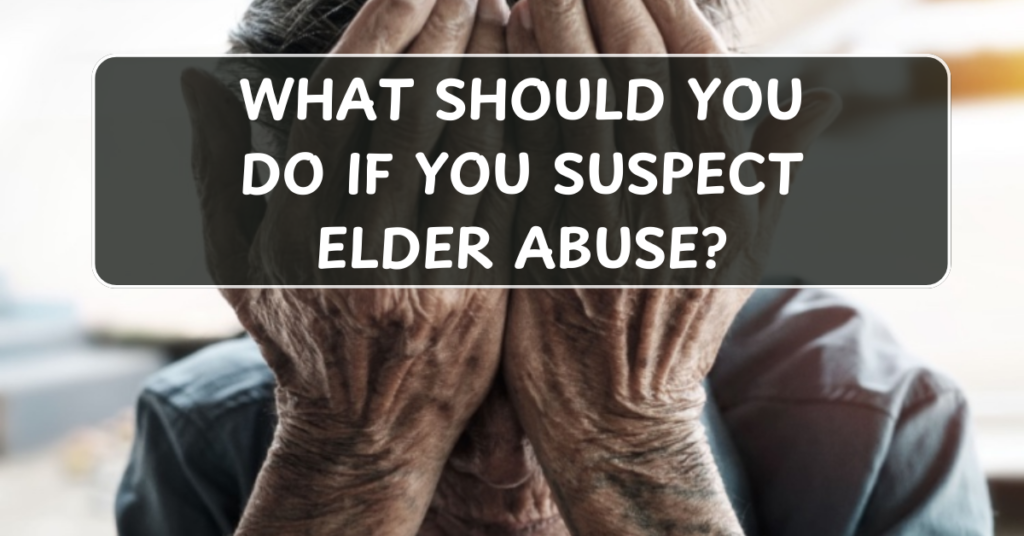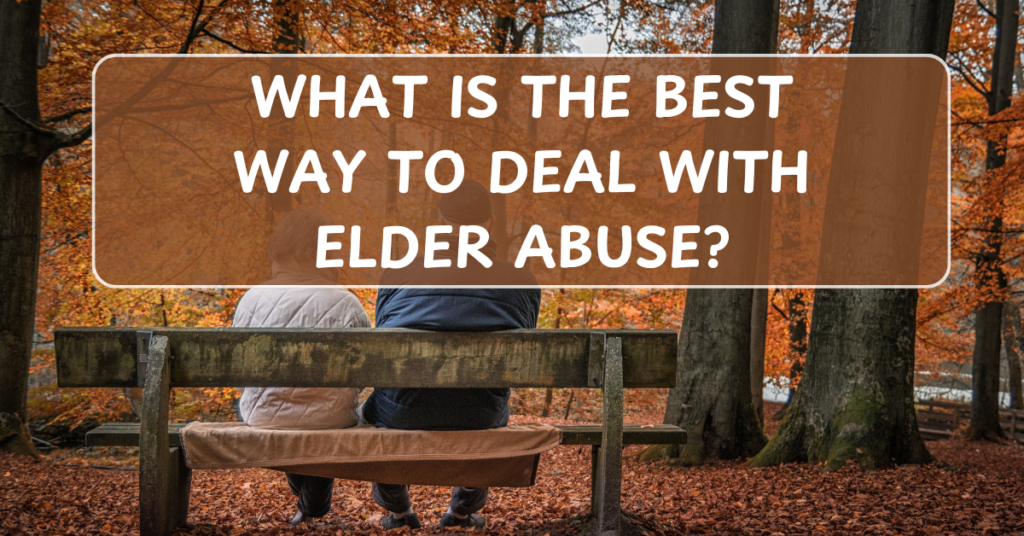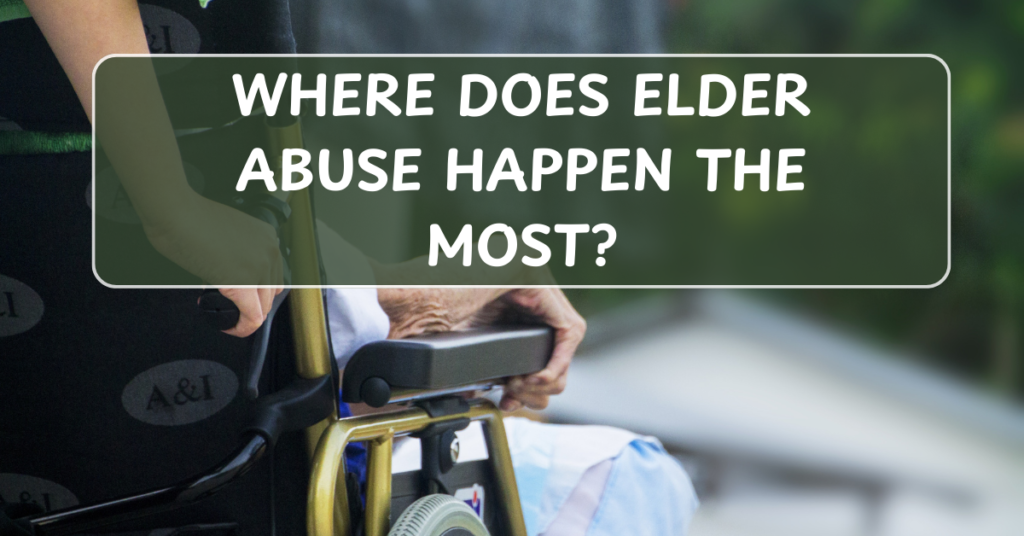
Elder abuse is a pervasive issue that affects millions of older adults worldwide. Whether it is physical, emotional, sexual, or financial abuse—or even neglect—its impact on the elderly can be profound and long-lasting. While the physical effects of abuse are often visible, the psychological consequences can be just as, if not more, damaging. Elder abuse significantly affects the mental health of victims, leading to a variety of emotional and cognitive challenges that can diminish their quality of life.
1. Increased Risk of Depression
One of the most common psychological effects of elder abuse is depression. The victim may feel hopeless, helpless, or worthless, often due to prolonged exposure to mistreatment.
- Feelings of Despair: Elder abuse often causes victims to lose hope in the people around them. Feelings of isolation and abandonment can exacerbate depressive symptoms.
- Loss of Interest in Activities: Victims of abuse may lose interest in activities they once enjoyed, leading to social withdrawal and emotional numbing.
- Difficulty Finding Joy: Depression caused by abuse can result in an inability to experience pleasure or positive emotions, significantly affecting the individual’s mental well-being.
2. Anxiety and Fear
Living in an environment where abuse occurs can create overwhelming anxiety and constant fear for the victim’s safety. The abuser’s actions can induce constant stress, leading to a heightened sense of vulnerability.
- Hypervigilance: Individuals who suffer from abuse often remain on edge, constantly looking over their shoulder for signs of harm or further mistreatment.
- Panic Attacks: Anxiety from prolonged exposure to abuse can lead to panic attacks, characterized by shortness of breath, racing heart, and feelings of impending doom.
- Fear of Retaliation: Victims may feel too afraid to speak out or seek help due to the fear of worsening the situation or facing further abuse, particularly if the abuser is someone close to them.
3. Post-Traumatic Stress Disorder (PTSD)
Elder abuse can also lead to post-traumatic stress disorder (PTSD), a condition characterized by flashbacks, nightmares, and emotional numbness after experiencing a traumatic event. This is especially true in cases of physical, sexual, or extreme emotional abuse.
- Flashbacks and Nightmares: Victims may relive the traumatic events they have experienced, causing them to feel as though the abuse is happening again.
- Avoidance: To cope, victims may avoid situations or conversations that remind them of the trauma, leading to further social isolation.
- Emotional Numbness: PTSD often leads to emotional detachment and difficulty forming close relationships, leaving the victim feeling emotionally disconnected from others.
4. Low Self-Esteem and Shame
Abuse, especially emotional and verbal abuse, can erode the victim’s self-esteem and sense of self-worth. Many elderly people who experience abuse feel shame or guilt, even though they are not responsible for their mistreatment.
- Internalized Blame: Victims may internalize the abuse, believing that they are at fault for the mistreatment, even though the responsibility lies with the abuser.
- Feelings of Worthlessness: Years of verbal abuse or neglect can lead elderly individuals to feel that they have no value, exacerbating mental health struggles.
- Difficulty Seeking Help: The stigma surrounding abuse may make it difficult for victims to reach out for support. They may feel ashamed or afraid that no one will believe them.
5. Cognitive Decline
In some cases, elder abuse, particularly neglect and emotional abuse, can lead to cognitive decline or worsen existing conditions like dementia or Alzheimer’s disease. Chronic stress and emotional trauma can impair the brain’s function, accelerating cognitive deterioration.
- Memory Loss: Stress and anxiety related to abuse can impair memory, causing confusion and difficulty in recalling simple tasks or important information.
- Difficulty Concentrating: Victims may struggle to focus, which can be exacerbated by constant fear or emotional trauma.
- Worsening of Pre-Existing Conditions: Abuse can worsen mental health disorders such as depression or dementia, making the elderly person’s condition more challenging to manage.
6. Social Isolation and Loneliness
Abuse often leads to social isolation, which compounds its negative impact on mental health. When an elderly person is subjected to mistreatment, they may withdraw from friends, family, and social activities, either due to fear or shame.
- Lack of Support: Social isolation prevents victims from accessing support networks, leaving them to cope with their trauma alone.
- Sense of Abandonment: Elderly individuals may feel abandoned by loved ones or caregivers, which can contribute to depression and anxiety.
- Difficulty Building Trust: Isolation can also hinder the elderly person’s ability to form new relationships, making it harder for them to trust others in the future.
7. Increased Risk of Suicide
In extreme cases, elder abuse may increase the risk of suicide. Elderly individuals who are isolated, abused, and suffering from mental health issues may see suicide as the only way to escape their pain.
- Feelings of Hopelessness: Victims of long-term abuse may feel there is no way out, leading them to contemplate or attempt suicide.
- Inability to Cope: With no emotional support or access to resources, victims may feel trapped and unable to manage their suffering.
8. Long-Term Psychological Effects
The long-term mental health effects of elder abuse can be profound and lasting. Even after the abuse stops, the psychological scars may remain, influencing the victim’s emotional and mental state for the rest of their life.
- Chronic Stress: The prolonged exposure to stress can lead to long-term health problems, including depression, anxiety, and other mental disorders.
- Difficulty in Recovery: Healing from the trauma of abuse can be a long and difficult process, and in many cases, professional therapy or counseling is necessary to fully recover.
Conclusion: The Hidden Impact of Elder Abuse on Mental Health
The psychological effects of elder abuse are far-reaching and can significantly alter the mental health of victims. From depression and anxiety to PTSD and cognitive decline, the emotional toll can be overwhelming. Recognizing these effects is crucial in helping to address elder abuse and providing the necessary support for recovery.
If you suspect someone is a victim of elder abuse, it is essential to take action by reporting the abuse to authorities and offering emotional support to the victim. By understanding the emotional effects of elder abuse, we can take steps to protect vulnerable older adults and help them heal from the trauma they have endured.


